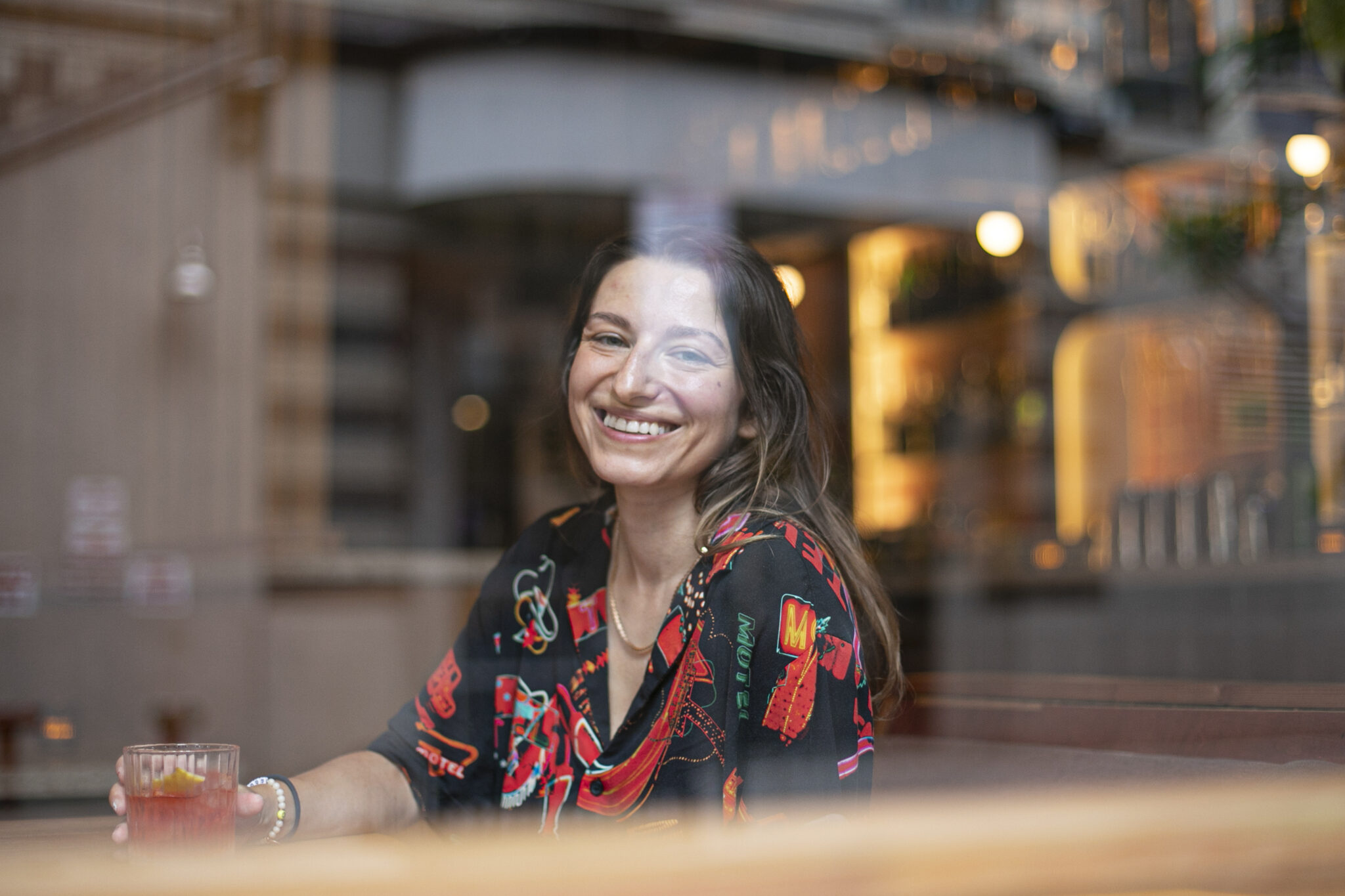Listen Bar is the first alcohol-free bar in New York City garnering attention from around the world.
All kinds of people gather at its pop-ups all over NYC, from those who have chosen complete sobriety to those who are just taking a night off from drinking. Here, they enjoy delicious alcohol-free cocktails, good music and conversation.
While drinking alcohol has long been considered the norm at bars, clubs, and other nightlife scenes, Romanian-born Lorelei Bandrovschi founded Listen Bar to prove that people can have great experiences without drinking alcohol.
Listen Bar has worked with talented mixologists to create new recipes and serve drinks with depth and complexity that can beat any alcoholic beverage. Their drink menu is always filled with unique and innovative drinks. The famous rapper Snoop Dogg once asked them to create a drink named after him.
Lorelei says “People won’t come if the drinks are not delicious.”
What kind of alcohol-free drink satisfies the palette of drinkers and non-drinkers alike? What kind of development is the rapidly growing alcohol-free industry showing?
As the sober curious trend also grows in Japan, we spoke to Lorelei who continues to be at the forefront of the movement as the pioneer of alcohol-free bars.
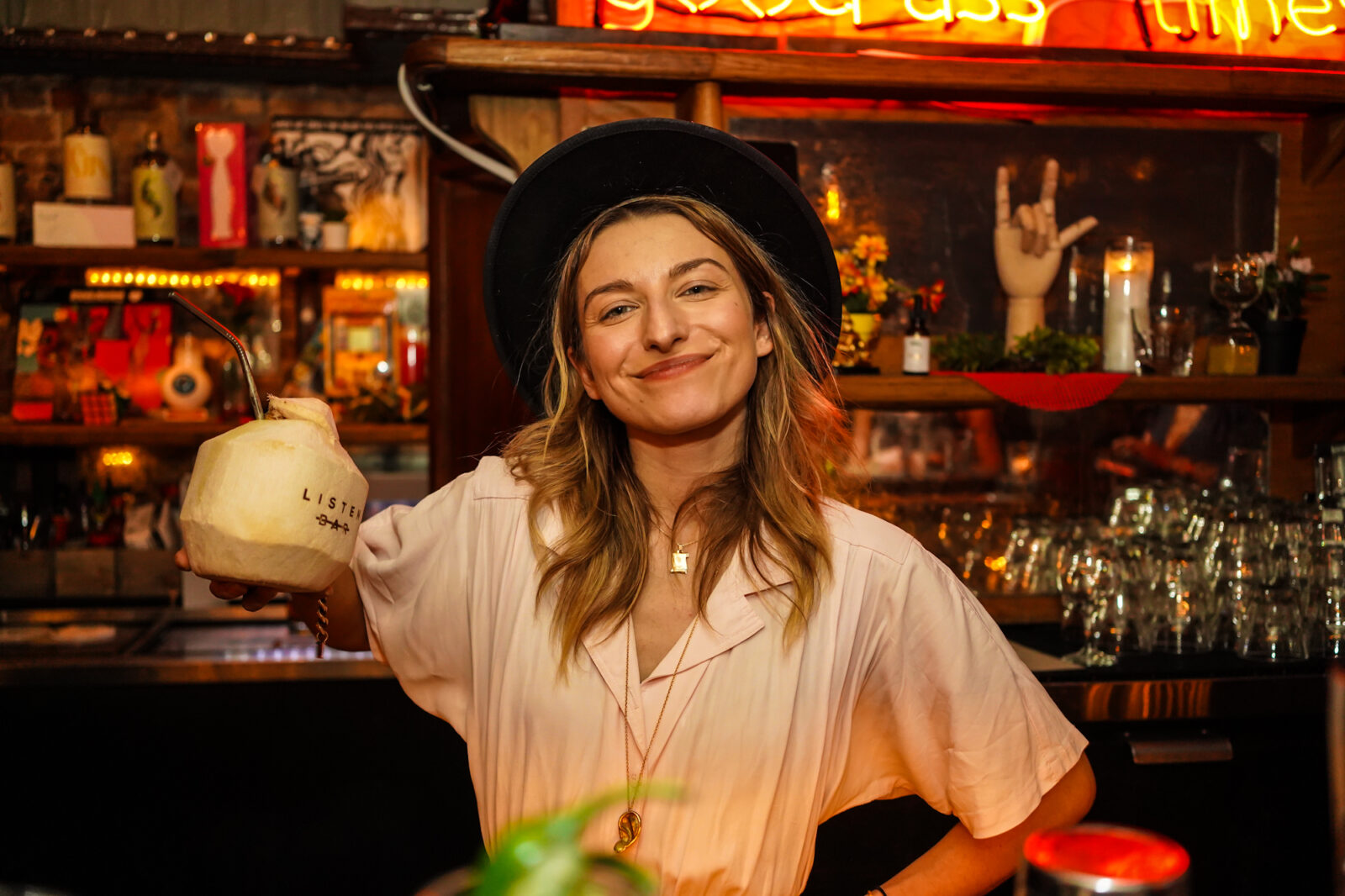
Alcohol-free choices becoming commonly available at local supermarkets
Compared to 2018, when Listen Bar first opened, the number of people who are practicing sober curious now has increased drastically. According to a US study in 2024, the number of people who said they wanted to participate in Dry January* was about 27%, or one in four of the respondents.
*Dry January is a campaign that is growing around the world where people temporarily abstain from alcohol for the month of January, especially to recover from drinking during the holidays from Christmas to New Year’s.
Once people experience a period of sobriety many people continue to adopt a sober lifestyle throughout the year, so this movement is likely to grow even further.
The number of beverage manufacturers and brands that are entering the alcohol-free drink market is also growing significantly and Lorelei says she receives calls from various brands who want to collaborate with her almost every week.
While the sales of alcoholic beverages in the US have either stagnated or declined in recent years, the sales of alcohol-free beverages have skyrocketed and have become one of the most competitive categories in the beverage market today.
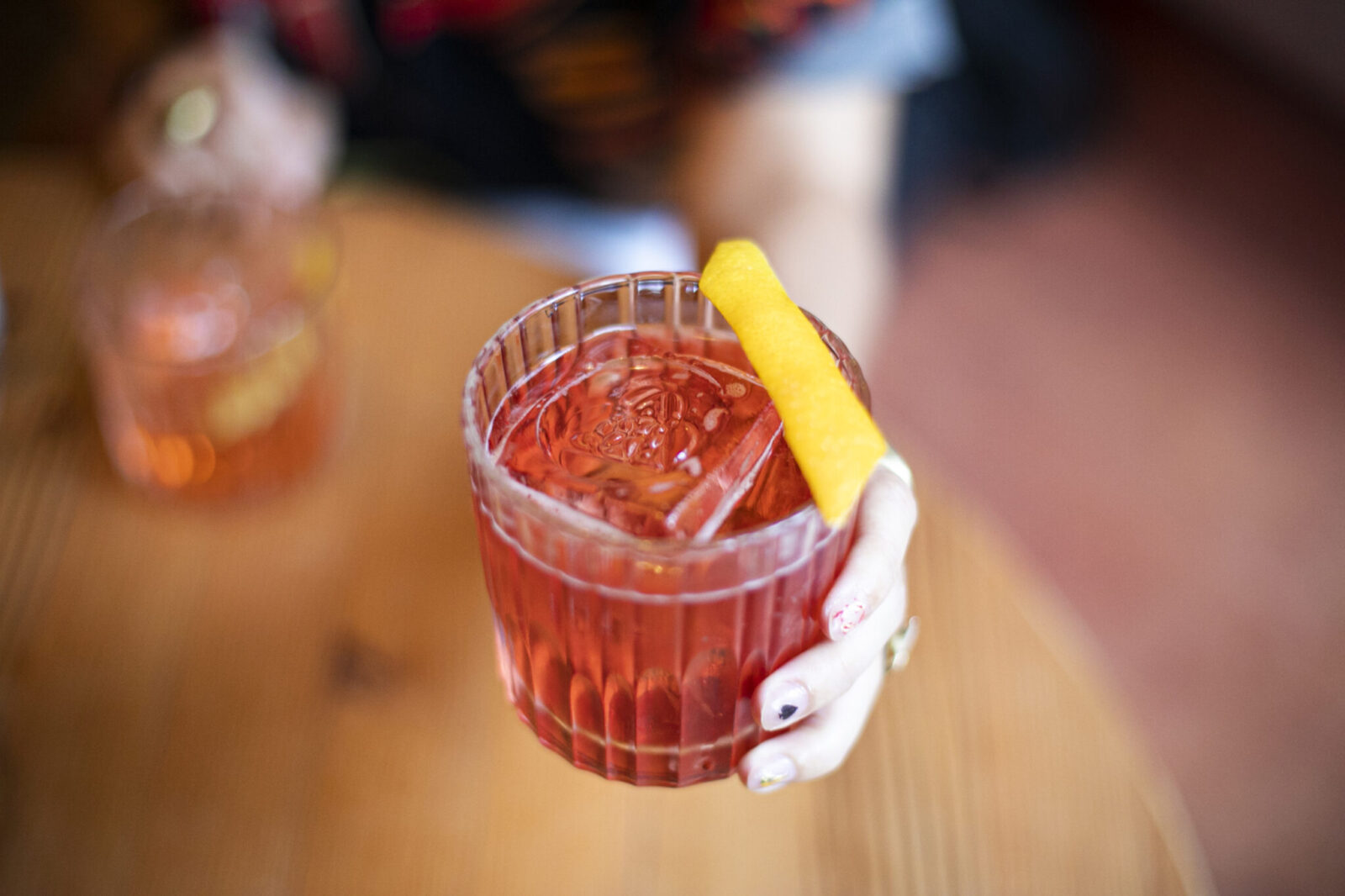
“From a cultural perspective, the alcohol-free movement has transformed society. People today are witnessing this change in real-time. In NYC, a good bar is expected to have a good alcohol-free drink menu.”
A variety of alcohol-free drinks can be found in local convenience stores in the suburbs of New York, and even Target also has a large selection.
The sober curious movement is growing rapidly as it becomes more common and alcohol-free drinks become more readily available for purchase. Its explosive growth is also reflected on social media sites such as TikTok and Instagram. If you look up the hashtags #sober #soberlife #sobercurious, you will find a massive amount of content and a large community of people behind it.
It is said that a large number of Gen Z have adopted the sober lifestyle. In the aforementioned study, they found that 75% of Gen Z said they intended to participate in Dry January.
Lorelei says that Gen Z grew up in a time where drinking was not the norm and they are more aware of the other options that are available besides alcohol.
“When you first tried alcohol, many probably didn’t find it tasty. Over time, you get used to it and start to like it. But if you’re surrounded by people enjoying themselves without drinking, you might realize there’s no need to force yourself to get used to it.”
“I believe that as we mature into a world with better options, more people will move away from the assumption that drinking is the default.”
Alcohol-free drinks that rival regular alcohol in both taste and cost
Listen Bar serves alcohol-free drinks that are just as delicious as alcoholic ones, and Lorelei is always working on developing new recipes.
She says that one time two men who came to Listen Bar together did not realize that their beers were alcohol-free, even after three glasses.
There was another time when they served alcohol-free cocktails at a New York Fashion Week party and several people loudly proclaimed that they could not drink anymore because they were getting too drunk and wild.
Lorelei laughs as she recalls these events and how amusing they were.
“When the quality of a drink is high, it can create a placebo effect where you actually start to feel like you’re getting tipsy. This effect is so powerful that you might even believe you’re drinking an alcoholic cocktail. Delivering that kind of experience is one of the reasons I find recipe development so rewarding.”
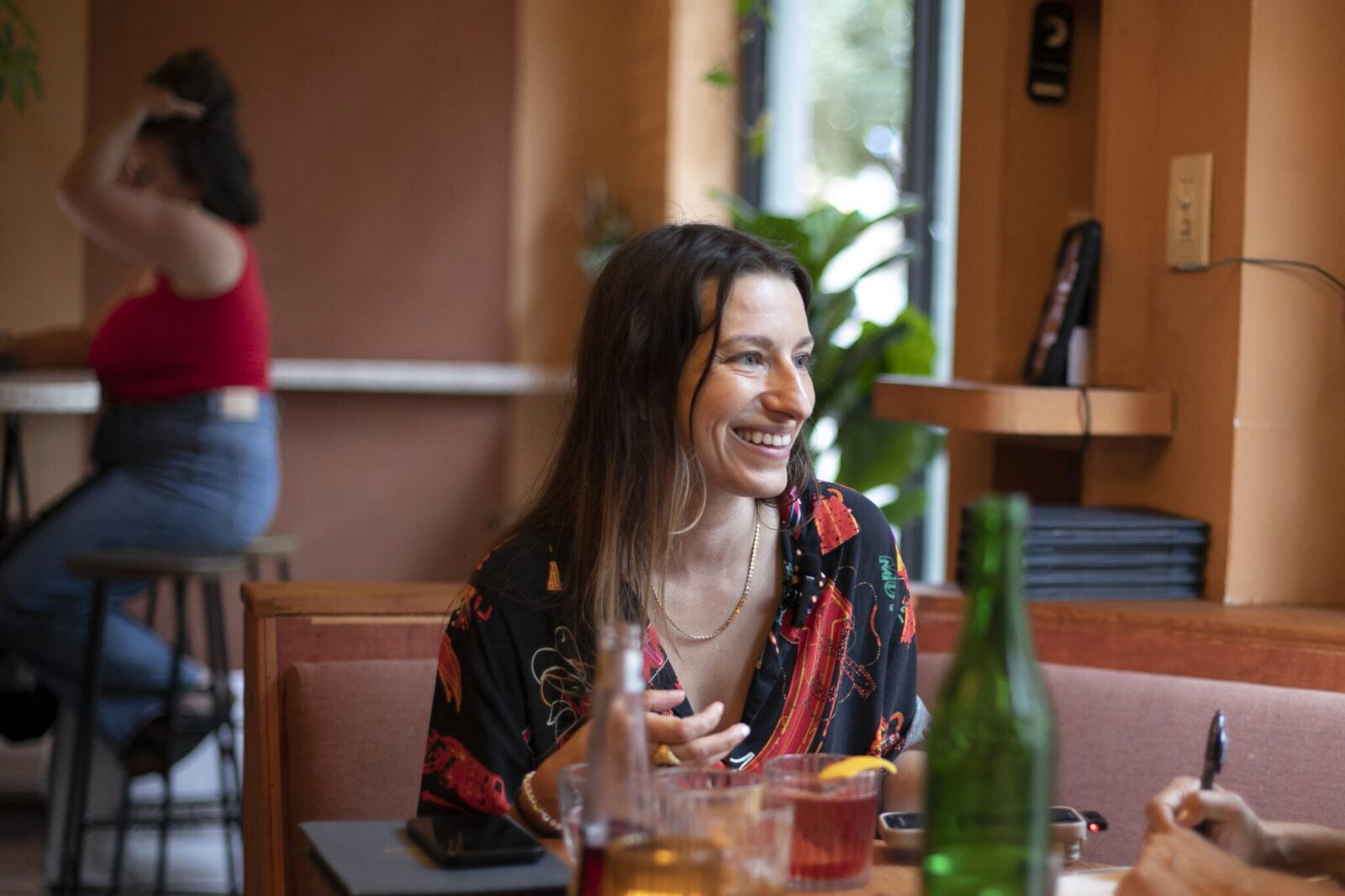
When Lorelei is working with a mixologist to create new alcohol-free drink recipes, she is most careful about delivering deep and complex flavors. They study the balance of flavors in the ingredients to create the perfect blend.
Listen Bar avoids drinks like lemonades, fruit juices, and sodas because these are already “ordinary” experiences.
“One of the most common questions we get from customers looking at the menu is, ‘Which one is the least sweet?’ People have often been disappointed by overly sweet, juice-like drinks. Many are more interested in drinks that are bitter, herbaceous, or spicy. Experimenting with these new flavors is really fulfilling.”

Because alcohol has a characteristic depth in its flavor, sometimes alcohol-free drinks can feel a little watered down and flat. Listen Bar aims to create a drinking experience that is just as satisfying as alcoholic drinks in their alcohol-free drinks.
They experiment and use the highest quality ingredients such as alcohol-free spirits, herbs, and other blends, and are always aiming to explore new realms. Listen Bar’s signature drinks are fairly expensive because of the generous use of quality ingredients and their price per drink ranges between $13 to $16.
“One thing I can say for sure is that creating a truly great alcohol-free cocktail requires investment. You either invest in sourcing top-tier ingredients or in dedicating time and resources to make the most of more common materials. It takes a lot of effort, time, and attention to detail to develop recipes that use high-quality ingredients and deliver the best possible flavor.”
Many people assume that alcohol-free drinks would be cheaper than alcoholic drinks, however, alcoholic beverage products are relatively inexpensive. Drinks with high alcohol content also have a long shelf life so a bottle can be kept at the bar for a while. Because the drinks can be made at a relatively low cost, alcoholic drinks have a high-profit margin.
On the other hand, alcohol-free beverages are not mass-produced so their production costs are higher. Specialty drinks that are made in collaboration with mixologists and bartenders, as well as homemade infusions and preparing various ingredients by hand all add to the cost of labor and ingredients.
The process of making high-quality alcohol-free drinks is more complicated than making an alcoholic cocktail and also more expensive.
“This is why it’s so important for consumers to understand that alcohol-free experiences are not inferior to those with alcohol. Honestly, if we were to price alcohol-free drinks according to the cost of quality ingredients and the work put into them, they’d probably end up being more expensive than alcoholic ones.”

Listen Bar’s unique drink menu and ingredient transparency
Listen Bar offers five to seven different drinks on their menu. It is a big enough selection to excite customers, but also not too many that it makes deciding on a drink difficult.
The names of the drinks all have a poetic playfulness and humor about them.
For example, there are:
Ghost me, Maybe
She, Pretty,
Spicy Titties
“‘Spicy Titties’ reflects our belief that a woman’s body is her own to express freely. We wanted to show that you can be wild, fun, and free even without being drunk. It’s more powerful to express yourself intentionally while sober, rather than blaming it on alcohol.”
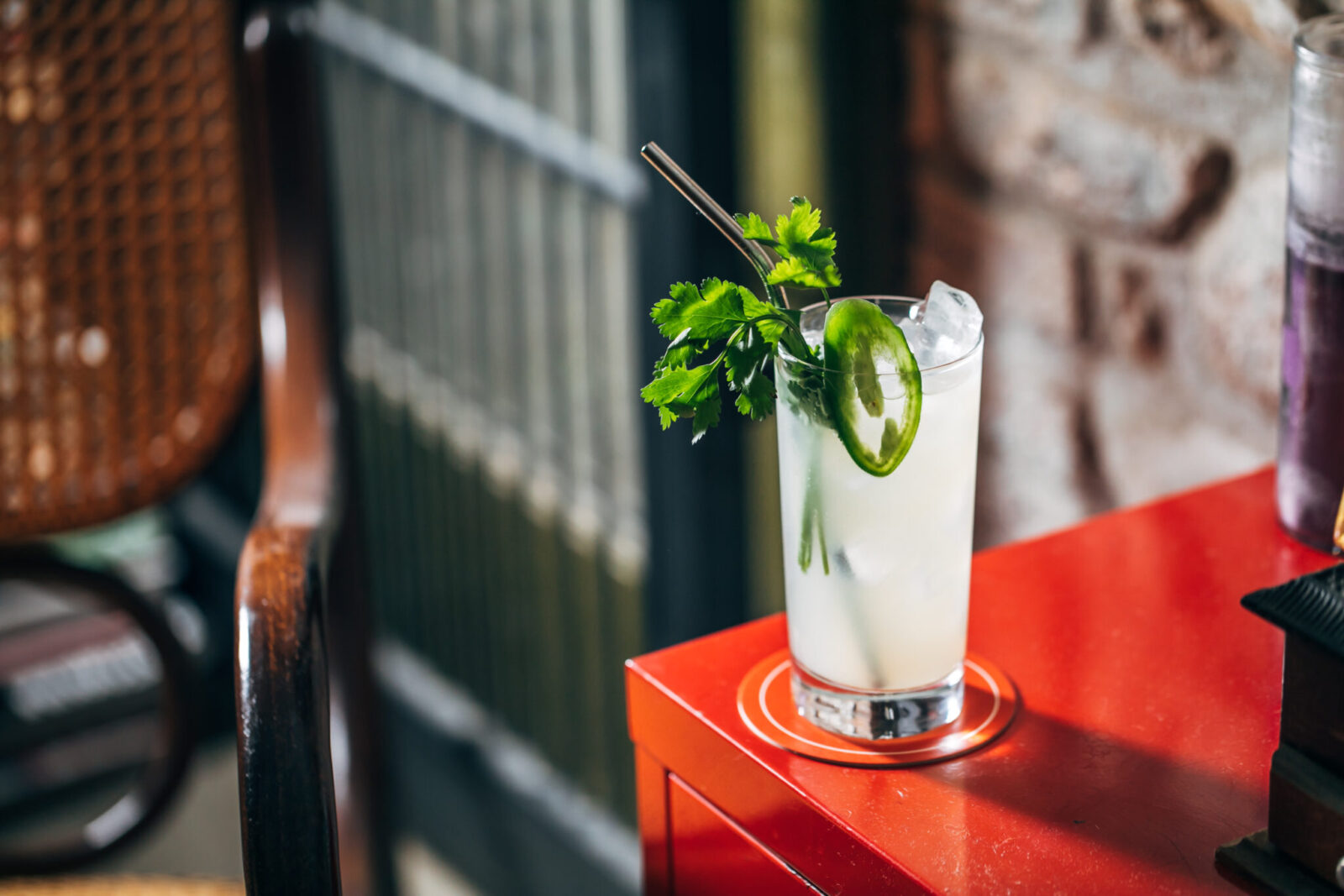
“When someone sees that name on the menu at a party, I hope they realize that just because you’re sober, it doesn’t mean you have to be serious. You can still be loud, cheeky, even sexy. I think it’s really powerful and meaningful to make the sober curious movement feel sexy.”
Listen Bar has also been a pioneer in the bar world for their nutritional labeling on the menu. The fact that they list whether their drinks are vegan-friendly, caffeine-free, sugar-free, and so on, has been a highlight of discussion.
“The people who don’t drink often care more about what ingredients they’re consuming, and in that sense, I think we’ve been recognized as pioneers in regard to transparency as well.”
Building an alcohol-free culture through collaboration with the music scene
Lorelei is connected to many renowned mixologists and collaborates with them to develop new alcohol-free drink recipes.
“We are very open to collaboration and we shine the spotlight on a lot of people when we develop our menu. Sometimes, we create signature drinks for specific individuals, like celebrities. When creating the menu, it’s important to imagine the various people and scenes in the bar.”
The bartenders are the ones who serve the drinks made from the original recipes of these up-and-coming mixologists. All the bartenders at Listen Bar are musicians who also prepare the music for the venue.
Lorelei felt that alcohol had a strong influence on the music scene at clubs, live concerts, and outdoor festivals. That is why she wanted to create a place where music is enjoyed without alcohol and came up with the idea of having musician bartenders.
“If the person making your drink is also a musician, and you realize the music playing in the bar is curated by them, it creates a whole new level of connection. It allows for interaction with artists, forming a one-on-one experience. The bartender is not just serving delicious drinks but also enhancing the vibe of the space.”
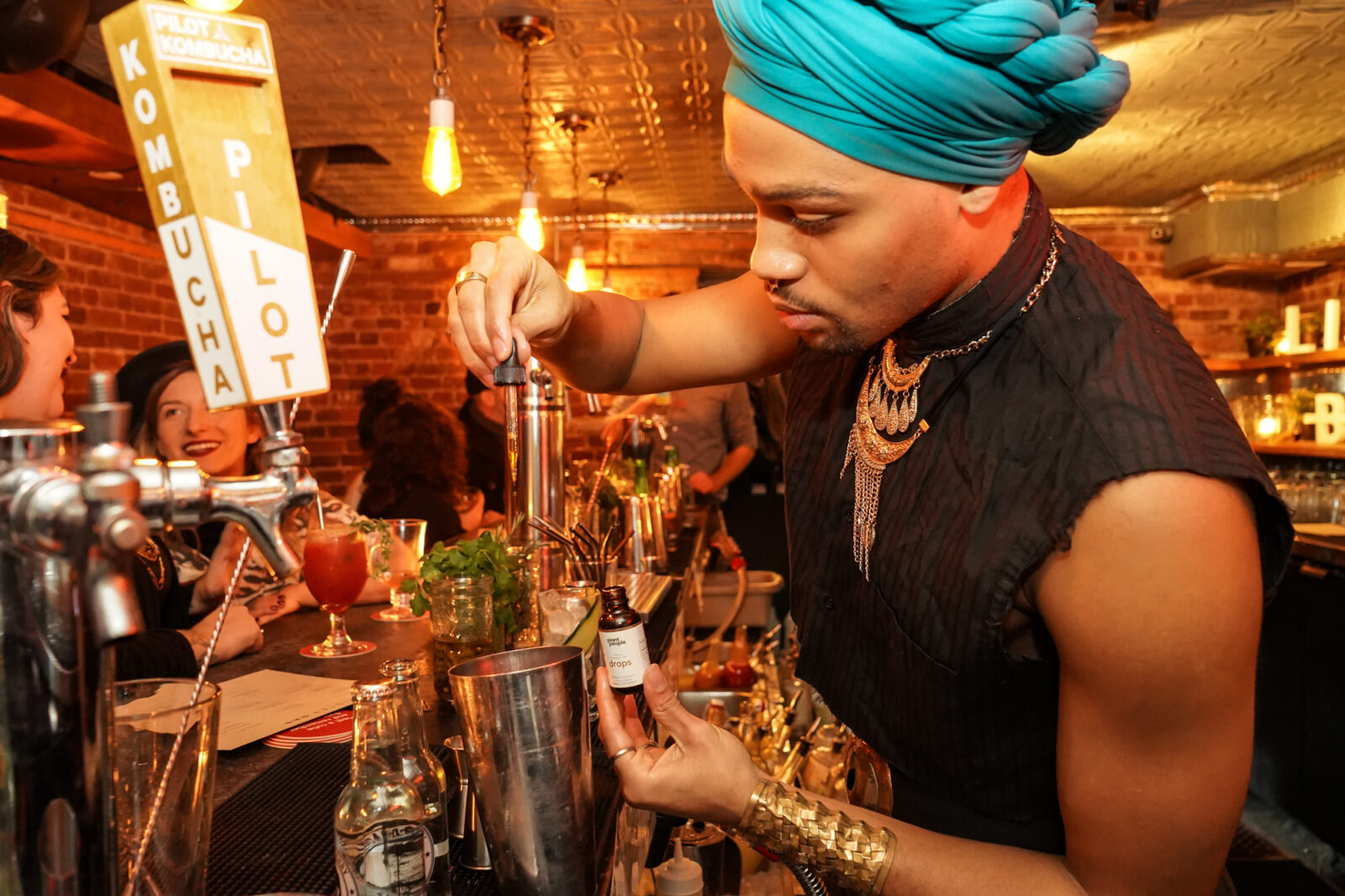
Alcohol and alcohol-free are not in conflict from a business perspective
There is no question that alcohol is a major source of revenue in the restaurant industry. Many bars and restaurants are afraid to embrace the alcohol-free movement because they fear they will lose customers and revenue.
“I think they just haven’t realized yet that embracing alcohol-free drinks doesn’t necessarily mean they will lose existing customers or sales. In many cases, they are simply not offering a choice that some of their customers already want.”
Even if a customer orders an alcoholic drink for their first glass, they may want to select an alcohol-free drink for their second glass. By offering the option of not getting drunk, the customers may stay longer and order different things.
If you look at the big picture, providing customers with more options may help increase individual satisfaction and ultimately increase sales.
In fact, it is not uncommon for groups that include alcohol drinkers and non-drinkers to come to a bar together. Lorelei says that if the people who don’t drink can enjoy dinners or the nightlife just like everyone else, bars or restaurants tend to see an increase in customers.
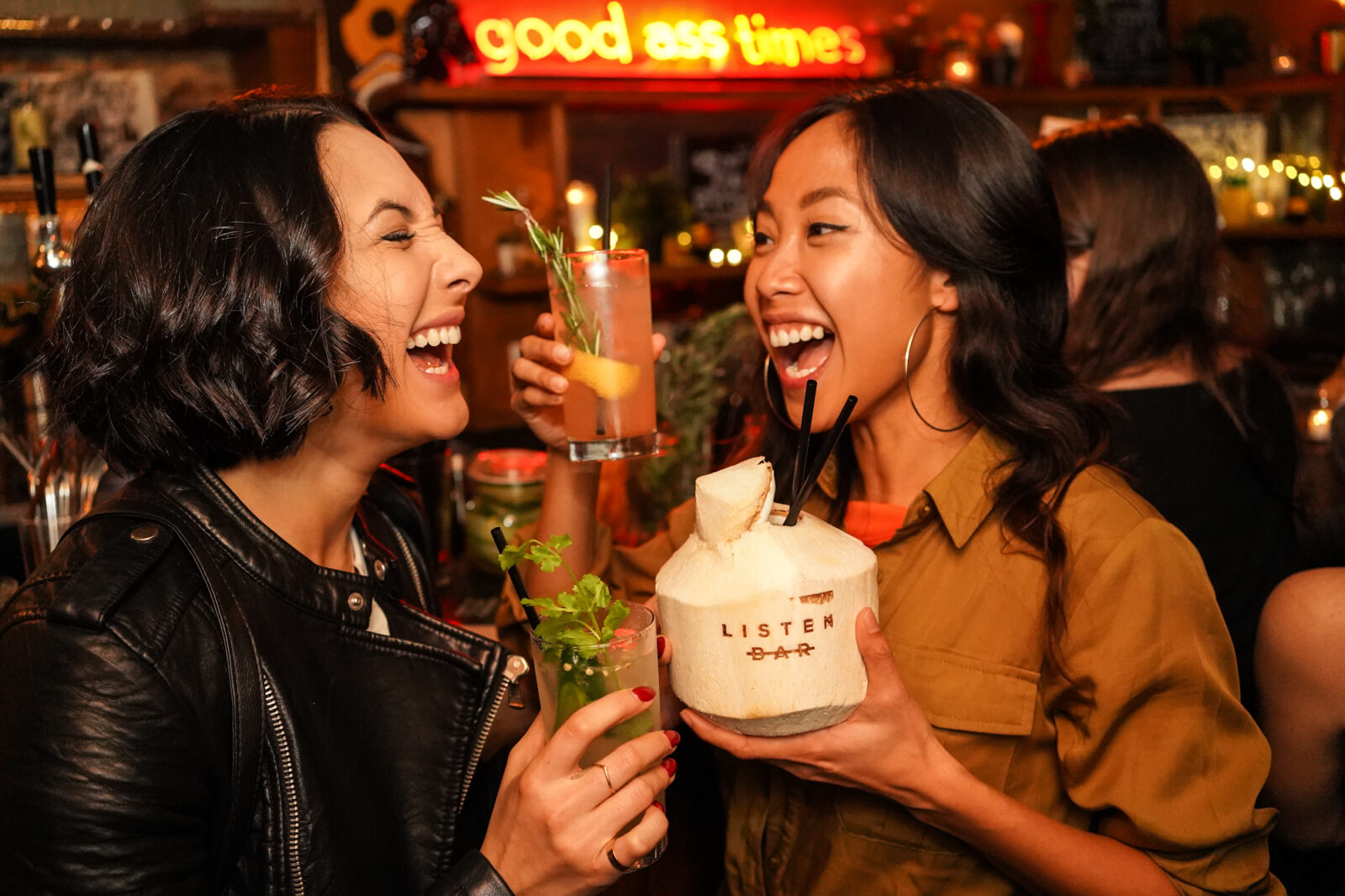
The core of the business: brand partnerships
One of Listen Bar’s most important businesses is brand partnerships. Not only are they marketing partners for alcohol-free beverage brands, but they also work with a wide range of brands such as Apple and H&M.
“Many brands want to reach out to Listen Bar’s audience because many of the people in the alcohol-free movement are often influential trendsetters in areas like lifestyle and wellness.”
For beverage makers, being used in Listen Bar’s drinks not only brings their product under the spotlight but is also a great way for them to test how customers respond. These collaborations have all been so well received that new collaboration requests pour in continuously.
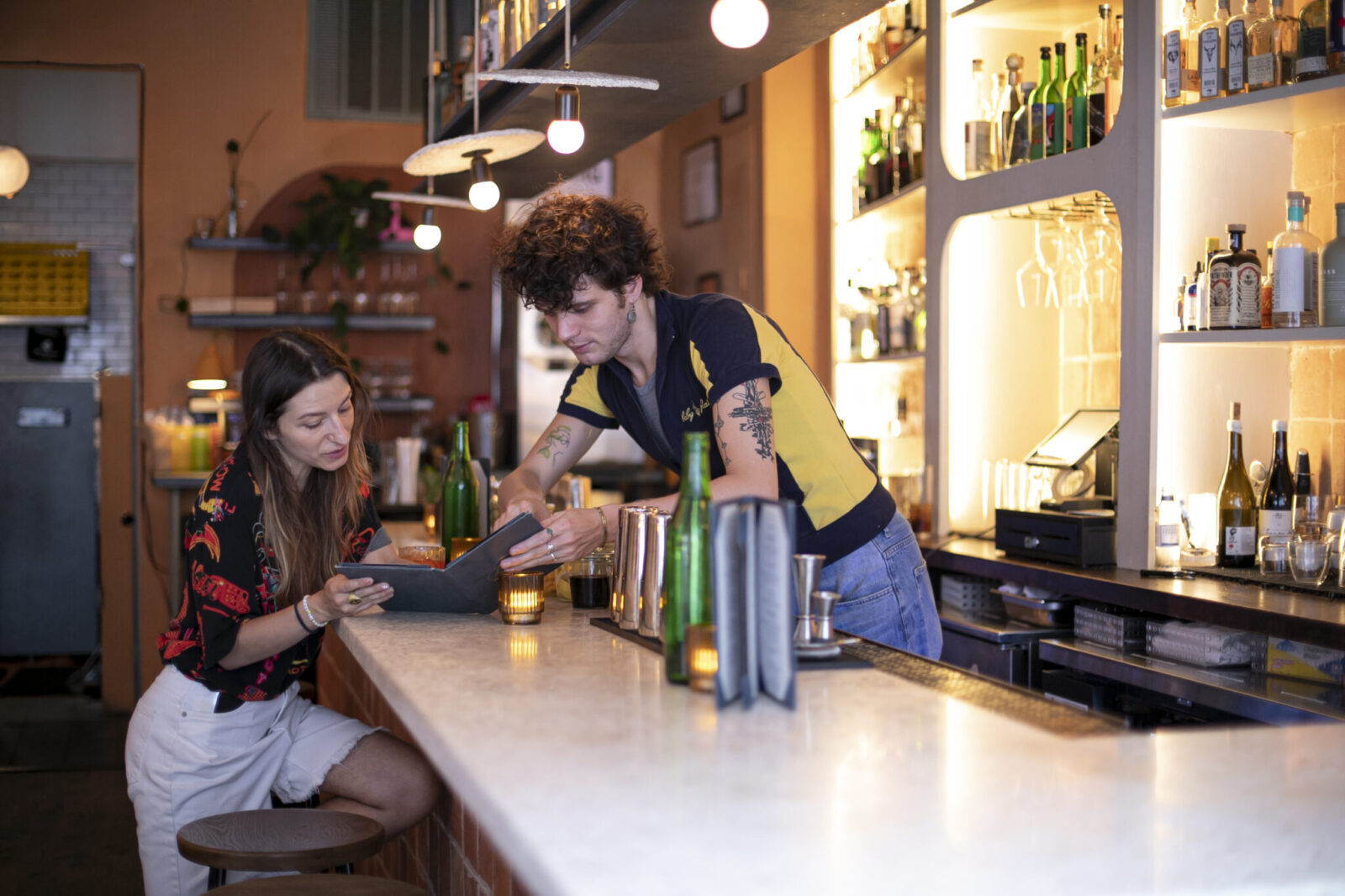
After discovering the bottled craft cocktail brand Curious Elixirs at a Listen Bar event, the famous jazz club Blue Note added them to their menu and was able to expand their sales, becoming one of Curious Elixirs’ biggest clients.
Before that, Blue Note had only been offering mixed juices on their alcohol-free drinks menu. But after they added the high-quality Curious Elixirs brand to their drink lineup, it quickly became a big hit.
“The club was looking for an alcohol-free drink that would be hassle-free for their bar team. In other words, something that was ready-made but also delicious. Curious Elixirs is a sophisticated alcohol-free cocktail that comes in a bottle and is ready to be served. Blue Note found success by finding the right product to fit their business model and incorporating it into their menu.”
As demands for alcohol-free drinks become more prevalent, major global beverage manufacturers are starting to join the market.
As a witness to this trend, Lorelei points out, “For companies in the alcohol industry, it is important that they invest and commit to the alcohol-free sector without fear of losing market share in their existing business.”
“I’ve seen many new brands fail. You can easily tell when a brand doesn’t understand the alcohol-free mindset—when it’s more of a drinker’s mindset or just trying to ride the trend. Brands that break through are the ones truly focusing on the culture of not drinking, understanding the environment, and lifestyle around it.”
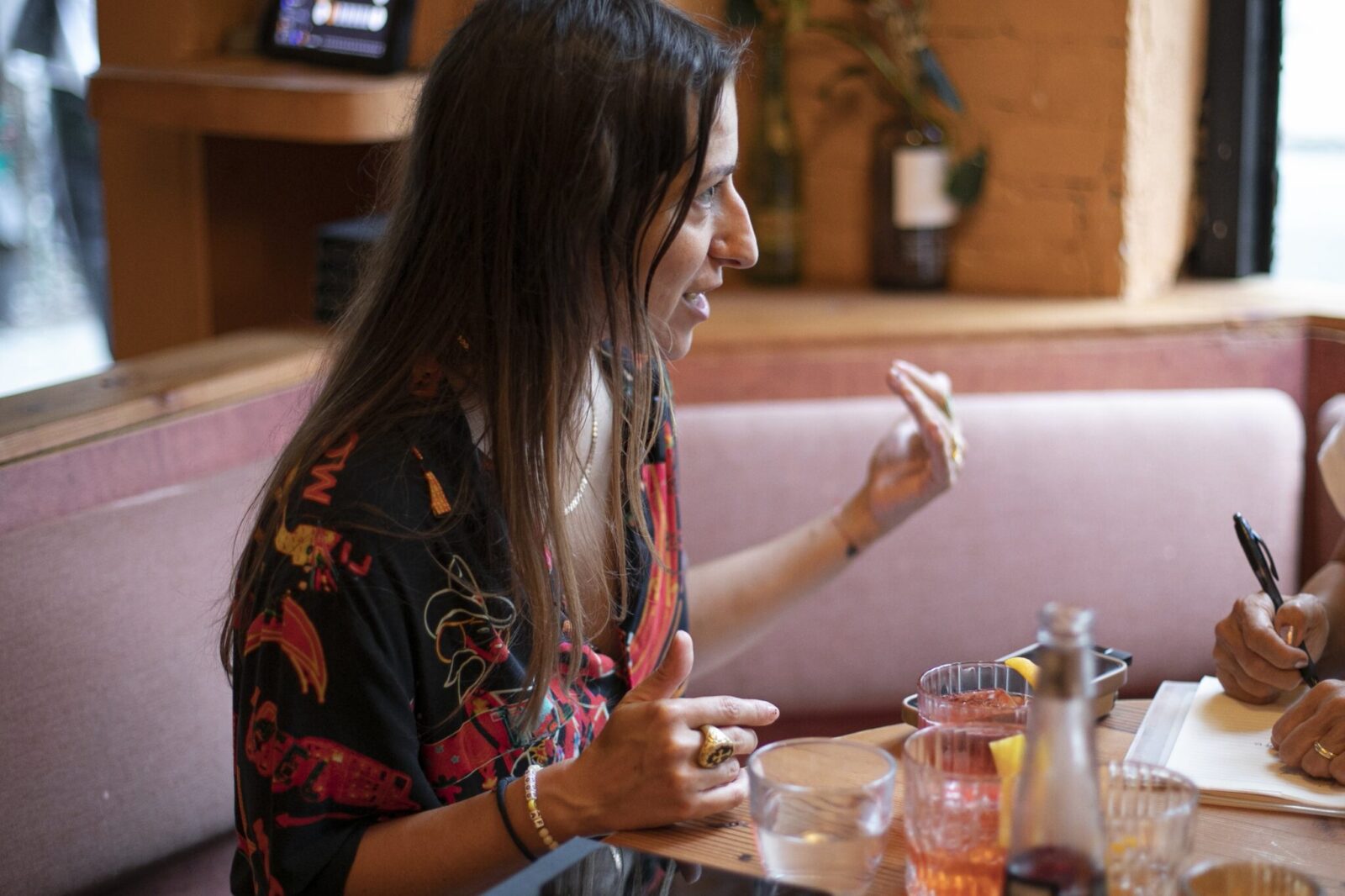
After opening the first alcohol-free bar in NYC, Lorelei has continuously advanced the alcohol-free movement. Moving forward, she plans to be actively involved in launching new brands and providing consultations on menu developments.
Connecting with the sober curious community and understanding their desires while also understanding the needs and challenges of the bar and restaurant owners and guiding them toward their best solution is an important task to truly make the alcohol-free movement take root in society and develop in the future.
Hosting the “Good Alcohol-Free Awards” joined by top bars
Lorelei organizes the Good AF Awards (Good Alcohol-Free Awards, although also Good As F**k) in order to promote and build the alcohol-free movement even more in New York.
In this event, five bars team up with different zero-proof beverage brands and compete for who can make the best alcohol-free cocktail.

The winner of the 2023 and 2024 competitions was Leyenda, which is located in Brooklyn.
The event is a popular competition in which many top bars in NYC join to compete. In the past, famous NYC bars like Dante, PDT, and Attaboy have competed, as well as the completely alcohol-free bar Hekate.
This award competition inspires the entire bar industry to raise the quality of their alcohol-free drinks and expand on their variety.
Lorelei believes that this event has become a bridge to connect bars with alcohol-free drinks in NYC.
“I want to inspire more people to take an interest in not drinking and encourage more bars and restaurants to offer higher-quality alcohol-free drinks. I’d love to see more initiatives like this to help create that kind of society.”
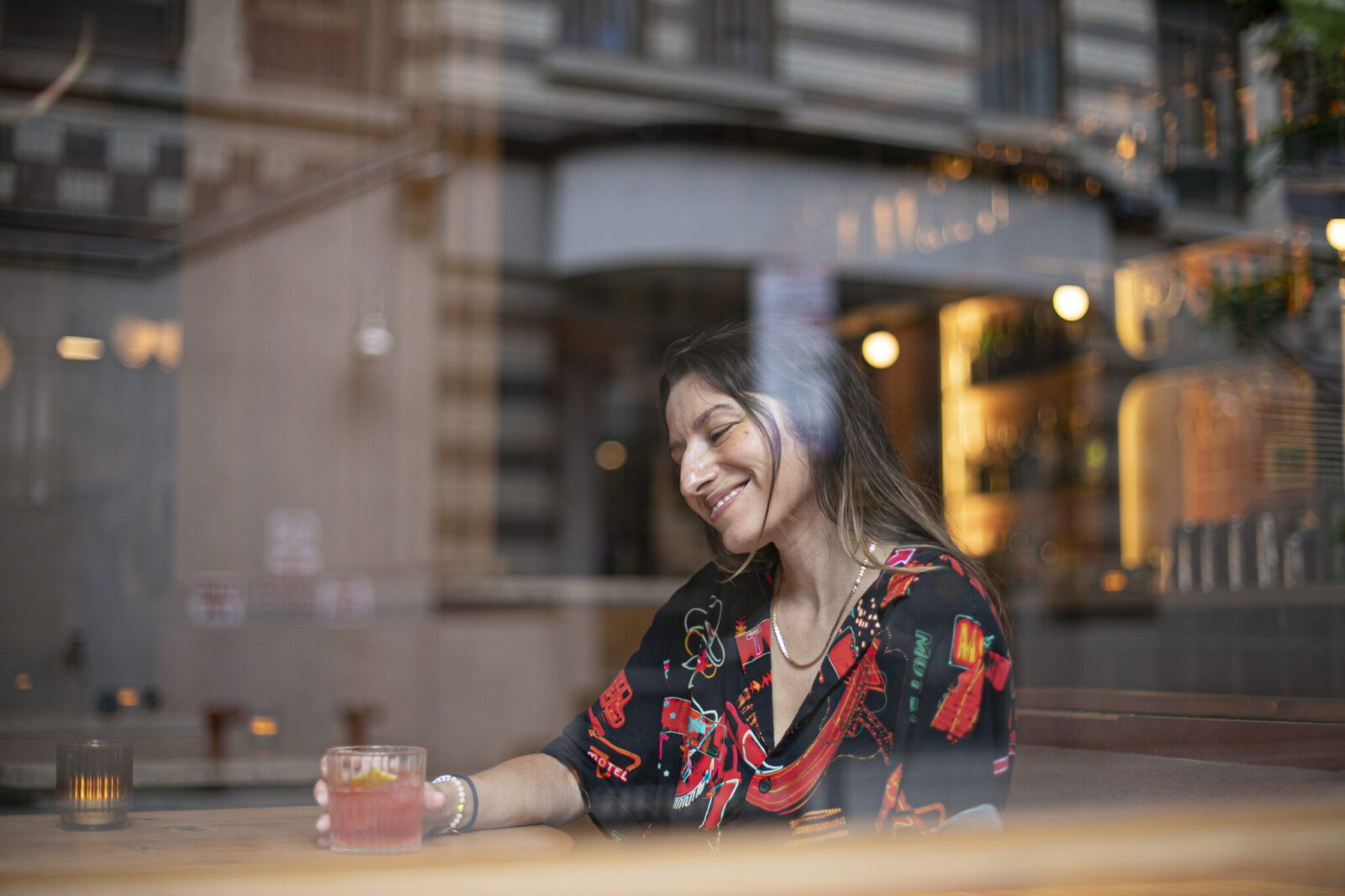
Spreading the alcohol-free movement across Europe, starting in Portugal
Lorelei currently splits her time between two locations, New York and Lisbon, Portugal.
While the alcohol-free movement is also growing in Europe, its influence varies greatly in the country and region.
England has always been a pioneer, with non-alcoholic spirit brands such as Seedlip making global headlines as one of the first brands to promote alcohol-free beverages. The number of alcohol-free bars is growing, as well as other developments such as alcohol-free festivals and conferences.
Lorelei held the first Listen Bar event in Lisbon, Portugal in June 2024. The event featured grand collaborations with Michelin-starred restaurants and famous establishments that have been voted among the best bars in the world. She also collaborated with a famous local chef to serve special course meals paired with alcohol-free drinks.
“In Lisbon, the options for people who don’t want to drink aren’t as widespread as they are in New York, but we’ve been able to plant the seed. Some bars were initially skeptical about sobriety, but now they’re highly motivated to elevate their standards. It’s exciting to be a cultural pioneer of the alcohol-free movement in different countries.”
“I’m excited to do new things that were never done before and continue to break the rules to pave the way for the future.”
Lorelei continues her quest to explore alcohol-free drinks and update the culture surrounding the sober curious movement. She aims to offer inspiration and choices in the alcohol-free world so more people can experience the “best possible time and experiences”. Always with a new twist, she continues to take her original vision and turn it into a reality.
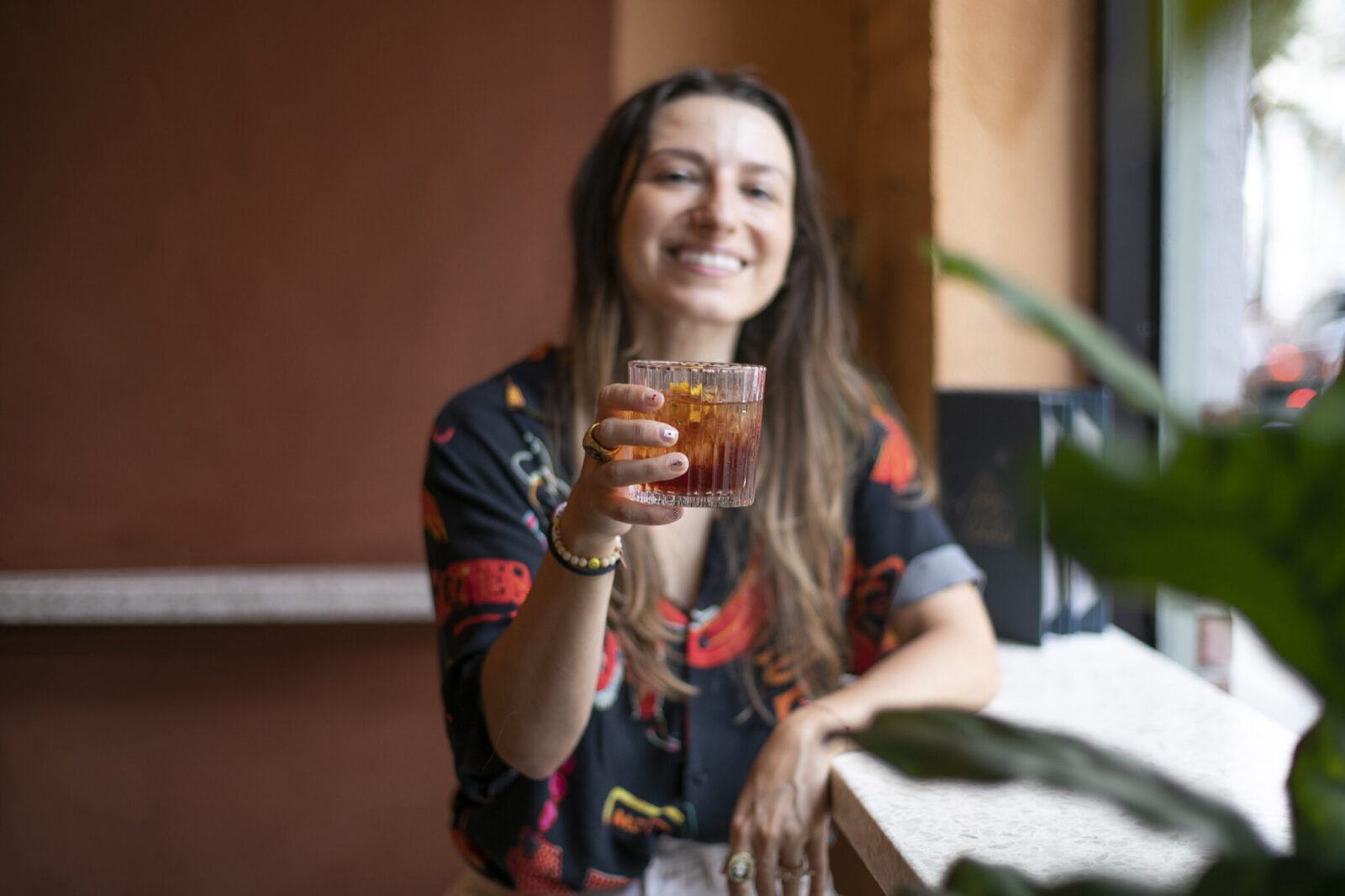
Shooting Location: Donna
Translation: Sophia Swanson
Editor, Writer, and Video Creator based in Tokyo, Japan. After years of backpacking and volunteering abroad, she fell in love with the charm of Southeast Asia while working in PR. Experienced as an editor at Huffpost Japan and a video director/producer for BuzzFeed Japan and other media outlets, she now specializes in crafting content themed on social issues and sustainability across various media platforms.
Editor and creator of the future through words. Former associate editor of Huffington Post Japan. Became independent after working for a publishing company and overseas news media. Assists in communications for corporates and various projects. Born in Gifu, loves cats.
Freelance photographer based in New York. Born in Tokyo, Japan. She started taking photographs at the age of 10, studied classical and specialized techniques in the photography department at the university, then became a freelance photographer in 2009. She currently operates studios in Brooklyn, NY, and Kichijoji and Tsukiji in Tokyo, while creating various works including commercials, portraits, fashion, and art.
